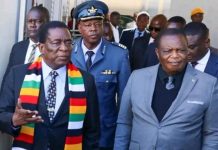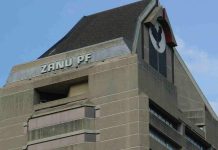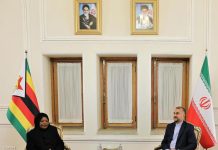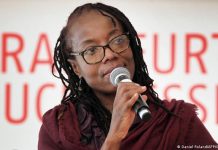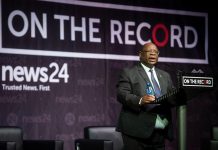DEADLY street protests which brought Zimbabwe to a standstill this week have added impetus to calls by opposition parties and civil society organisations for President Emmerson Mnangagwa to agree to dialogue, leading to a negotiated political settlement which could save the country from total collapse, the Zimbabwe Independent can report.
This comes as organisers of the demonstrations gave Mnangagwa a 30-day ultimatum, by which he should have drafted a framework for negotiations, or face a “tsunami” of more mass protests.
The groups, which organised the total business shutdown, vowed to continue with sustained protests despite the government’s heavy-handed approach in crushing dissent.
They are demanding national dialogue that would lead to the setting up of a transitional authority, which is inclusive, to run the country and realign the constitution in preparation for an election in six months to a year.
The push for dialogue is coming at a time the security sector is divided, with some disgruntled members of the security services, particularly those in the lower ranks in the military and police, supporting the protests privately.
Mnangagwa has a formidable task to appease members of the security forces, who like most Zimbabweans are bearing the brunt of the economic hardships, and have also not been spared the austerity measures introduced by government in recent weeks, including the 2% tax on electronic transactions and 150% fuel price hike.

Mnangagwa, whose legitimacy has been challenged ever since he won last year’s presidential election by a wafer-thin 50,6% margin, is battling to set Zimbabwe’s creaking economy on the recovery path.
While the Zanu PF first secretary has previously said he does not talk to losers, the ruling party’s spokesperson, Simon Khaya Moyo, in an interview with the Independent, did not rule out the prospects for inclusive dialogue.
Moyo said Zanu PF could not rule out the possibility of talks with the opposition if a formal request for dialogue was put on the table.
“We want those people with their proposals to come and approach us if they want dialogue. I cannot respond to a proposal that we have not received because I don’t want to commit to anything. You do not invite the head of state through the media; there are channels to do that,” he said.
But as calls for dialogue between Mnangagwa and his political opponents gained momentum, contradictions emerged within the security establishment, with both the army and police denying responsibility for the death of at least 10 people during the three-day business shutdown, triggered by Mnangagwa’s recent decision to increase fuel prices.
Although the government has blamed civil society for orchestrating the strike, pro-democracy groups have hit back at Mnangagwa, saying only genuine dialogue, leading to a power-sharing agreement, would extricate the country from a multi-faceted crisis.
Pressure group #Tajamuka frontman Promise Mkwananzi — widely identified as one of the principal architects of the protests — said the country needed an urgent, all-inclusive process which will usher in a transitional mechanism.
The process — to precede a general election — should be spearheaded by the Southern African Development Community (Sadc) and the African Union (AU), Mkwananzi said.
“We are putting the government on a month’s notice to address the issues we have raised or else they will face more anger from the people. This process should be underwritten by Sadc and the AU community. The priority of the process should be on implementation of the constitution and revival of the economy,” Mkwananzi said, as he distanced his grouping from messages circulating on social media suggesting that more protests will be held next week.
“After that, then we can have fresh elections because the reason why we are in this economic mess is because of flawed elections, which resulted in a legitimacy crisis for the current government,” he said.
Although Zanu PF has professed ignorance over ongoing backroom talks with the opposition, the Independent exclusively reported late last year that ex-Kenyan chief justice Willy Mutunga has been pushing to broker a political deal between Mnangagwa and Chamisa behind closed doors.
As reported by the Independent, Mutunga quietly flew into the country in December on a quest to negotiate a political transition in Zimbabwe, although details of the meetings remain sketchy.
Political analysts believe dialogue, modelled around the 2008-2009 global political agreement which ushered in a Government of National Unity, was the only way to extricate the country from the current quagmire.


